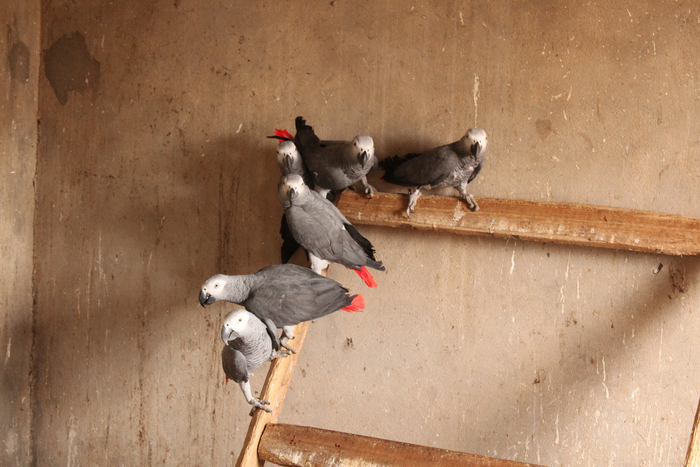Wildlife trading on social media is a complex issue – but tech firms can take steps to tackle it, according to new research.

Credit: World Parrot Trust
Wildlife trading on social media is a complex issue – but tech firms can take steps to tackle it, according to new research.
Laws on selling live animals vary depending on location and species, while social media firms generally restrict or prohibit sales (with some exceptions for traders such as pet shops).
The new study – by the universities of Exeter, NOVA Lisbon, Cape Town and Oxford, and the World Parrot Trust (WPT) – examined social media posts promoting sales of live birds from West Africa.
In 400 posts, the researchers found 83 different species for sale – including endangered timneh and grey parrots.
With some countries currently drafting legislation (such as the UK’s Online Safety Bill) to tackle harmful online content, the researchers say tech companies should use wildlife experts to improve moderation and automated detection.
“The illegal and unsustainable wildlife trade poses a major threat to global biodiversity, and trade in some species can spread infectious diseases,” said Alisa Davies, who carried out the research at the University of Exeter and is now a wildlife trade specialist for WPT.
“Like other areas of commerce, both legitimate and harmful, the internet has supercharged the sale of wildlife for purposes ranging from luxury artefacts to exotic pets.
“Social media platforms have enabled traders to connect as never before, bypassing middlemen and exchanging information on how to evade law enforcement.
“Although some big platforms have introduced strong community standards prohibiting trade of ‘endangered’ wildlife and restricting sales of live animals to legitimate businesses, it takes only seconds to find, for example, endangered parrots for sale.”
Of the posts examined in the study, less than 20% were clearly marked as adverts using terms such as “for sale”.
The rest – which would not be found by a simple algorithm looking for these terms – used methods such as avoiding certain key words or placing sale information on the images (rather than in text on the platform).
Dr Ana Nuno, of the University of Exeter and NOVA University Lisbon (Portugal), said: “To date, platforms have largely relied on users and third-party organisations to flag prohibited material, which is then examined by moderators.
“This is clearly not working. They need to work with wildlife experts to develop automated systems to detect harmful and prohibited content.
“Expert input could include information on how animal sales are worded and posted, country-specific laws on animal trading, and the conservation status of particular species.”
Dr Amy Hinsley, of Oxford’s Department of Zoology, added: “There is no one-size-fits-all solution for detecting wildlife trading online.
“Our study, however, establishes a framework for thinking about how different sectors of illicit or harmful activity can be understood and moderated more effectively.”
The researchers say algorithms and machine learning are only part of the solution.
“If we’re going to fix the internet, manual analysis will be a part of the process too,” said Davies.
“At the moment, collaborations between tech firms and subject-matter experts remain in their infancy, but cleverly designed legislation, savvy regulators and investment from tech firms could drive solutions forward at pace.”
The study found live birds being sold from countries that are currently dealing with outbreaks of H5N1 avian influenza.
The cramped and stressful conditions in which many of the birds are stored create an “ideal” environment for diseases to spread, according to co-author Dr Rowan Martin, of WPT.
“Infectious diseases of conservation concern have been found among wild parrots seized from bird export facilities in West Africa,” he said.
He added that the conservation impact of such sales on the various species identified in the study – many of them parrots or songbirds – is largely unknown.
The paper, published in the journal Conservation Biology, is entitled: “Identifying opportunities for expert-mediated triangulation in monitoring wildlife trade on social media.”
The University of Exeter has launched a ‘Green Futures’ campaign and website to drive action on the environment and climate emergency. To find out more please visit https://greenfutures.exeter.ac.uk
Journal
Conservation Biology
DOI
10.1111/cobi.13858
Method of Research
Data/statistical analysis
Subject of Research
Animals
Article Title
Identifying opportunities for expert-mediated triangulation in monitoring wildlife trade on social media
Article Publication Date
12-Nov-2021




